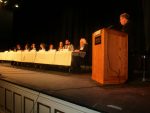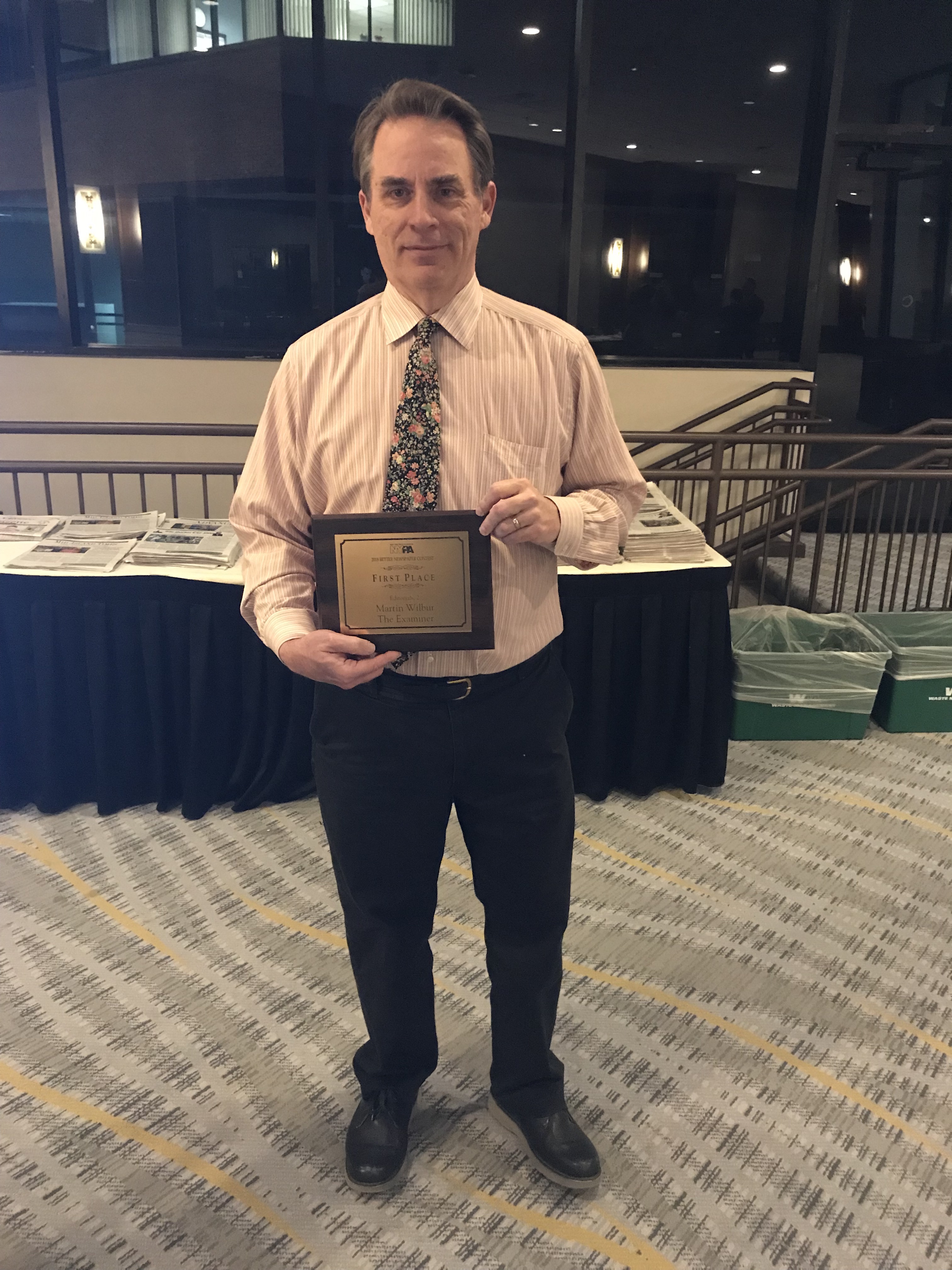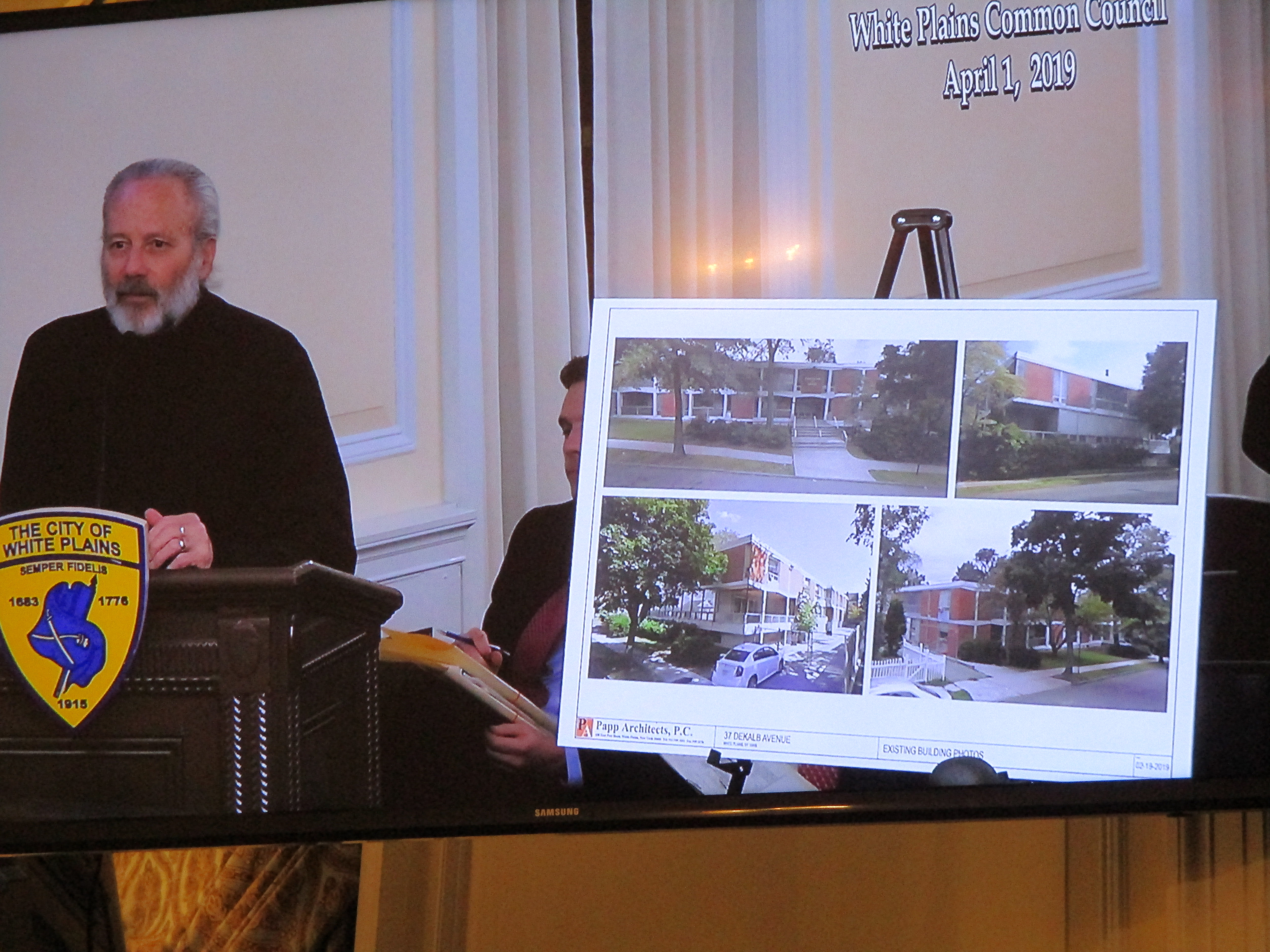Harckham Panel Discussion Centers on Steps to Clamp Down on Hate

State Sen. Peter Harckham (D-Lewisboro) last week hosted a forum focusing on steps residents and policy makers in Westchester and New York State can take in hopes of stemming the rise of hate incidents and shootings.
The more than two-hour discussion on Apr. 3 at Pleasantville High School, “Hate in the Age of Multiculturalism: Are Thoughts and Prayers Enough?” featured an eight-member panel, nearly all of whom have experienced some form of bigotry. They included clergy, human rights advocates and representatives of various organizations.
The impetus for the forum came following Harckham’s visit to a Mohgan Lake mosque shortly after the mass shooting in New Zealand last month. Its members were shaken up, unsure whether to send their children to school. One woman thanked the senator for stopping in but told him more needs to be done to combat hate.
“What we’re trying to accomplish tonight are some action items, some things by the end of this session we can all own and take responsibility, whether that’s a legislative perspective, from the faith-based community, things that we can do to ease the climate of hate and intolerance and certainly violence,” Harckham said.
State gun laws were strengthened earlier in the current legislative session in Albany with the passage of the Extreme Risk Protection Order (ERPO), where someone that a court finds dangerous can have their weapons temporarily confiscated, and expanding the background check from three to 30 days, he said.
However, other remedies are needed that go beyond new laws, according to panel members. Finding venues and activities for the community at large to get to know each other is a good start.
Rev. Dr. Martha Jacobs, head minister of the First Congregational Church of Chappaqua, said when the church offered space to the Upper Westchester Muslim Society until their new mosque is built, it wasn’t something that seemed unnatural. The Chappaqua Interfaith Council has had functions that include a wide assortment of houses of worship in New Castle.
“We had meals together, we do a Thanksgiving feast together, Thanksgiving services together, we’ve done vigils together,” Jacobs said. “We know each other, so it made it much easier to open our doors to our Muslim friends.”
But diversity alone doesn’t ensure harmony. Peekskill NAACP President Valerie Eaton said hate and intolerance is often taught in the home. Even in her home school district, which has a widely varied population, there are problems, she said.
“It’s amazing to be that it still does happen because we have such a diverse school system,” Eaton said. “Why is it still happening?”
Over the past couple of years, immigrants, particularly Spanish-speaking residents, have felt the sting of bigotry, said panelist Martha Lopez-Hanratty, who works in County Executive George Latimer’s office. While getting a cup of coffee at a Dunkin’ Donuts in White Plains one day, a man in the shop heard the workers behind the counter speak Spanish, then called them “illegals” and ordered them to “speak English,” she said.
“I fear for all the families who are walking down the street with their strollers, who may not speak English, who may not feel comfortable,” Lopez-Hanratty said. “This is happening every single day. This is happening in Westchester.”
Karin Anderson Ponzer, the director of the Mount Kisco-based Neighbors Link community law practice, said isolation often happens where people of different backgrounds don’t interact.
“I think if there are ways we can sort of get to know each other, that we can remove the type of barriers, which I really think are language,” Ponzer said. “There’s just social isolation, even for people of goodwill (it) can be hard. It’s just differences in how people get around. There are these barriers but I think there are many ways we can connect.”
Meanwhile, Sleepy Hollow Mayor Ken Wray said municipal leaders, particularly those with large immigrant populations, need to have consistent outreach.
“A big part of it is reaching out, not trying to be too smart, not trying to be too full of themselves,” he said. “What can be do that’s going to help.”
Another panelist, Chappaqua attorney Kristen Browde, president of LeGal, one of the nation’s first bar associations of the LGBT legal community, said the state should develop LGBT competency curriculum for schools while Saad Siddiqui of the Westchester Human Rights Commission, who adopted a biracial child with his wife, suggested that New York’s adoption laws should be changed since they among the least progressive in the nation.
Some of the panelists questioned whether their efforts can make a difference, but Rabbi Sarah Freidson of Temple Beth Shalom in Mahopac said hate can never be allowed to go unchallenged.
“I think we need to call out bigotry when we see it because it’s wrong, not because it’s going to lead to atrocities,” she said.

Martin has more than 30 years experience covering local news in Westchester and Putnam counties, including a frequent focus on zoning and planning issues. He has been editor-in-chief of The Examiner since its inception in 2007. Read more from Martin’s editor-author bio here. Read Martin’s archived work here: https://www.theexaminernews.com/author/martin-wilbur2007/


